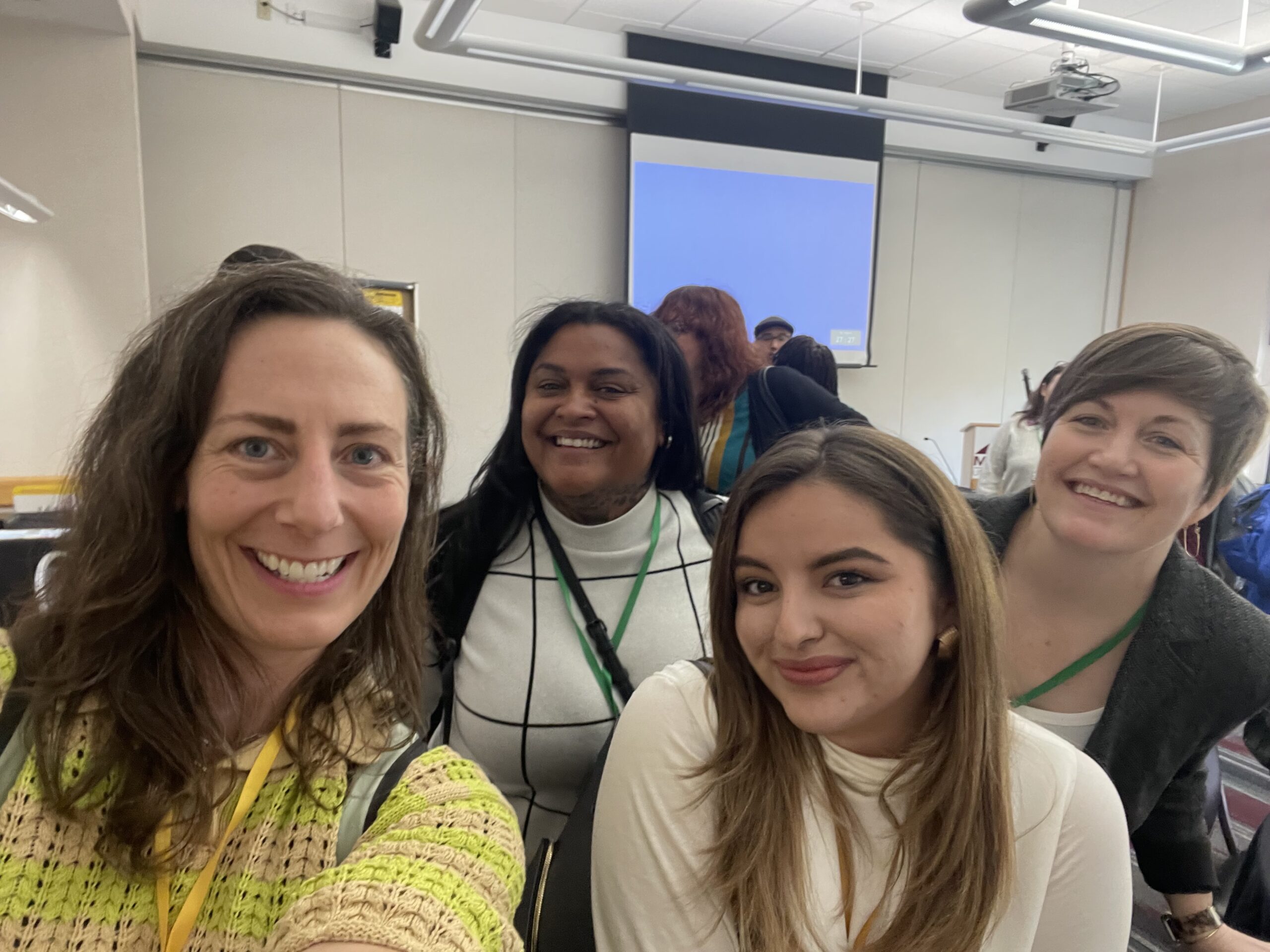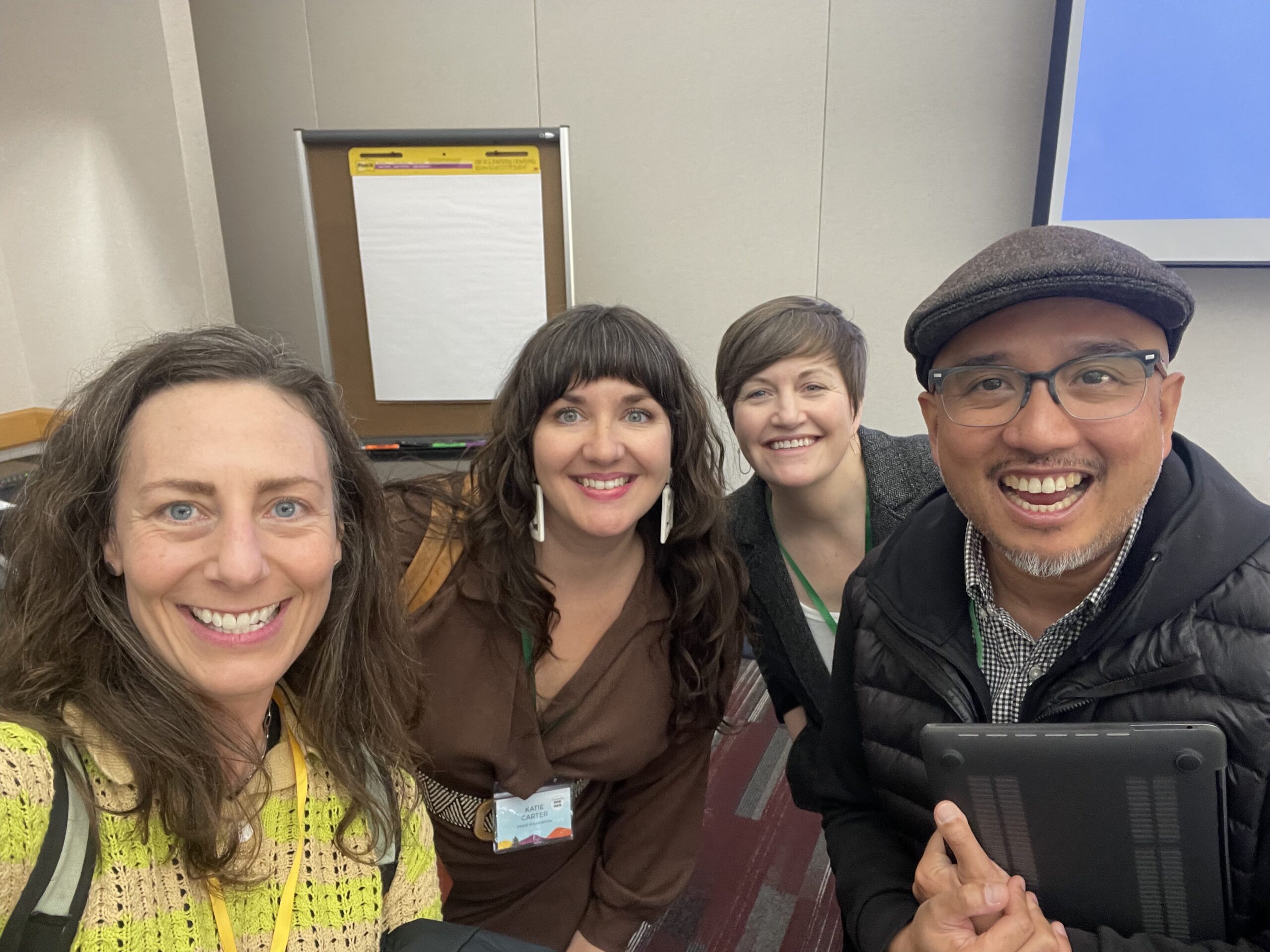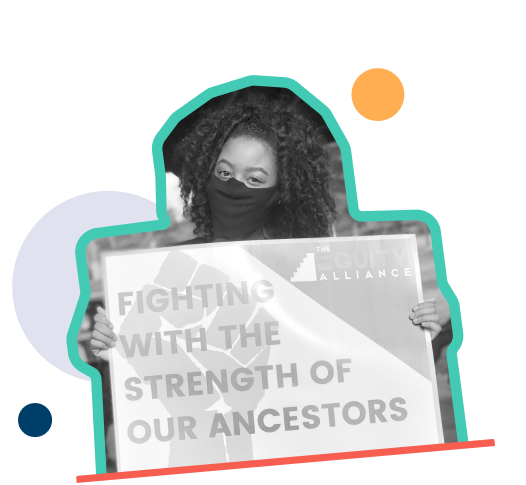Power. Rural. Community. Impact.
Real talk about what it takes for funders to achieve the types of wins they so eagerly want to see.
Spoiler alert: It’s both as hard to do as we hate to admit, but it’s also easier than we let ourselves think…
An Actionable Recap of the Integrated Rural Strategies Group’s Session at Philanthropy Northwest, “Building Rural Community Power at the Intersections of Economic, Racial, Land, and Gender Justice”
Earlier this year, the Integrated Rural Strategies Group was invited to design a session for Philanthropy Northwest’s annual conference, which was held in the third week of October amongst the yellowing leaves and larch tree needles of the University of Montana campus in Missoula, Montana.
“YES,” I replied immediately, already having a beautiful and powerful conversation and slate of speakers in mind to fit the bill.
PNW is a peer funder network to Neighborhood Funders Group, with a membership of foundations of all types across a six state region in the Pacific Northwest: Alaska, Washington, Oregon, Idaho, Wyoming, and my own home state of Montana. Like some other regional Philanthropy Serving Organizations (or “PSOs”), Philanthropy Northwest is actualizing equity and racial justice in its work - even “nudging” its funder members along this path, as PNW’s CEO Jill Nishi boldly, clearly and yet also humbly phrased it during her opening remarks at their October conference.
I was - and have been over the past few years - deeply appreciative of PNW’s work to this end. It has created opportunities for IRSG to partner with this important regional funder network to deepen their members’ analyses, strategies, and peer connections of what advancing equity and racial justice looks like in practice for philanthropy, and particularly in the Pacific Northwest’s extensive and diverse rural communities.
The groundwork that PNW has laid with its members in the region was apparent with the enthusiastic and aligned responses during the conference plenaries, keynotes, and hallway dialogue. During the opening lunch, PNW’s outgoing board chair, the incredibly brilliant and solidly justice-centered philanthropic leader Nichole June Maher, who serves as President of the Inatai Foundation, walked the funders in the audience through a beautiful and strategic story likening the overly protective urges of a parent who inhibits their child’s progression away from training wheels on their bicycle to the patriarchal nature of funders whose own “insecurities” and “unfair concepts of risk” are inhibiting the rightful autonomy, vision, and progress of the communities we are purporting to serve.
The following day, I invited funders into what became a standing-room-only breakout session where, whether they realized it or not, we were about to take the training wheels right off.
At the front of the room, my invited comrades from across the region sat with microphones in hand, poised to reveal the good, bad, ugly, and - predominantly - the beautifully powerful, raw, and real stories of what it takes to build power in the Pacific Northwest’s rural communities and what the incredibly important and impactful results are when this is achieved.

Monica Cerda Ortiz of Capaces Leadership institute in Oregon, Juli Ray C. Joy of Black Joy Oregon (as well as Partnership for Safety and Justice), and Siobhan Ring of Firelands in turn shared their thoughts on:
- How civic engagement and leadership development are powerful models for building impactful community power
Monica shared how Capaces’s civic leadership development program, People’s Representatives, has built a deep bench of informed and engaged citizens within their largely Indigenous/immigrant/Latinx community in Oregon. The result? Local school boards and other decision making bodies being reflective and representative of the local community; citizens understanding and engaging in municipal and county budgeting processes; and community members engaging in Capaces’s multiple local and statewide networks and coalitions to support and advance the needs of the area’s Latin/e/o/a/x, immigrant, Indigena, Afrodescendiente, and farmworker children, youth, adults, and elders of Oregon’s Mid-Willamette Valley (this region is home to over 120,000 people from these populations (comprising approximately 20% of Oregon’s total Latine population), including recent, second, and third generation immigrants).
- What the diverse manifestations of community power can look like, ranging from simply having visibility in communities all the way to affecting change at the capitol.
Juli Ray spoke with both humor and gravity about using her organization, Black Joy Oregon, to show up in Oregon’s rural communities to spread joy, make clear the presence and dignity of Black and people of color community members in Oregon’s small towns, and to build human connection across race and place. With very little support from philanthropy, Juli Ray and her team have snowballed this work to deepen collective power that has - through their loving and brave tenacity - grown to break ground on the Black Joy Farm and providing equitable access to food to mainly BIPOC/low-income community members; supporting and empowering community members to have greater safety, justice, and dignity in encounters with law enforcement; and supporting maternal health needs with an expanding birth worker and doula network to name just some of their impact. A key actionable offering to funders of Juli Ray’s was the sharing of her experience of the lack of availability of general operating grants and the burdensome proposal and reporting requirements being a real barrier to blocking the growth of her work.
- How the time tested and labor intensive tactic of grassroots community organizing is building power across divides of race, language, and politics in rural Washington.
Siobhan told the story of Firelands’ gritty origin; a couple of organizers with a vision who rubbed pennies together to build trust, have kitchen table conversations, and begin weaving a vision for folx in the heart of rural coastal Washington’s timber country. Firelands’ communities - like many rural BIPOC and low-income communities - live at the intersection of poverty/disinvestment, climate crisis, and rising authoritarianism. Through intensive, relational, and multilingual organizing work, Firelands has made incredible inroads - one conversation at a time - to build power and foster a shared vision for the things we all need and want: good jobs, clean air to breathe and water to drink, affordable & healthy housing, health care, and more. Just five years into this work, the Firelands team and community are witnessing the evidence of the power they are building, from securing wins around urgent environmental health and safety concerns like household weatherization and climate resilience, to building a new center of gravity for multiracial solidarity in the region, and climate resilience, to growing power to move state lawmakers, to undermining the racialized scarcity narratives that have dominated the region for decides and seeding new stories; where rural people can have good jobs AND clean air and water, not one or the other. Firelands' story makes crystal clear that the organization’sed’ existence is possible due to the bold support of a few brave early-stage funders, which allowed these communities to see the types of wins that just about any foundation would hop on board to help advance.

Following Monica, Juli Ray, and Siobhan, we turned to three funders who are pursuing unique strategies to thoughtfully resource beyond metro/urban communities to reach people in their geographies more fully and equitably and build more durable statewide power:
Joaquin Uy of Magic Cabinet described their unique capacity building cohort funding approach, and how he is navigating translating this model to apply to rural Washington communities. Specifically, Joaquin walked us through questions he’s holding around funding fiscally sponsored projects, building a network where there is relatively little existing community infrastructure, and “right sizing” funding to meet rural groups’ realistic budget needs.
“As a foundation that has traditionally funded city-based organizations, Magic Cabinet’s journey first started from the place of determining whether our cohort-based, capacity support model was appropriate for nonprofits serving rural communities in Washington state. But as the research progressed, we very quickly discovered that not only is funding for capacity-building a need and a gap for rural-serving organizations, especially for those with missions focused on civic engagement, community organizing, and/or power-building, but that the cohort model, paired with multi-year capacity-building funding, has the potential for long-term and long-lasting benefits for the rural communities those organizations serve.”
Next, Katie Carter, who leads Pride Foundation, shared about the realities of funding to rural LGBTQ+ led and focused organizations across their expansive five state region in the Pacific Northwest. As a community foundation, Pride is uniquely accountable to its partners on the ground and lives into its position to reach and fund incredibly critical and also hard-to-reach (by traditional philanthropy’s standards) work.
Erin Dysert of Meyer Memorial Trust closed out the conversation, sharing what the Trust has learned over its long tenure of intentionally funding rural communities across Oregon. Several of the well-known “trust-based” funding practices such as general operating support grants, multi-year funding, reducing proposal and reporting bureaucracy, and adjusting/adapting impact metrics not only apply in rural grantmaking - but are particularly critical to build trust and achieve equity.
Looking back at the audience in that room on the University of Montana campus in late October, there were several folks whom I know have deep experience in and commitments to resourcing rural communities. I also know there were funders who are just exploring what this might look like for them. In both cases - and for everyone in between - I know that the work and stories shared by Monica, Juli Ray, Siobhan, Joaquin, Katie, and Erin offer inspiration, actionable learnings, and evidence of the critical importance of building rural community power. If you’d like to learn more about these individuals’ work, be connected, or just connect - I’d love to hear from you. Reach out at lindsay@nfg.org.




